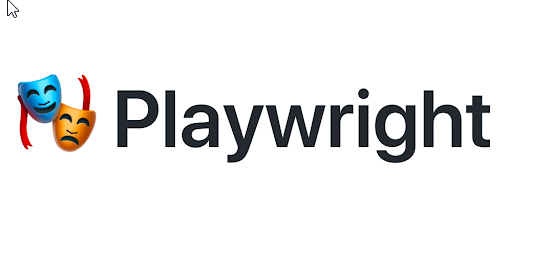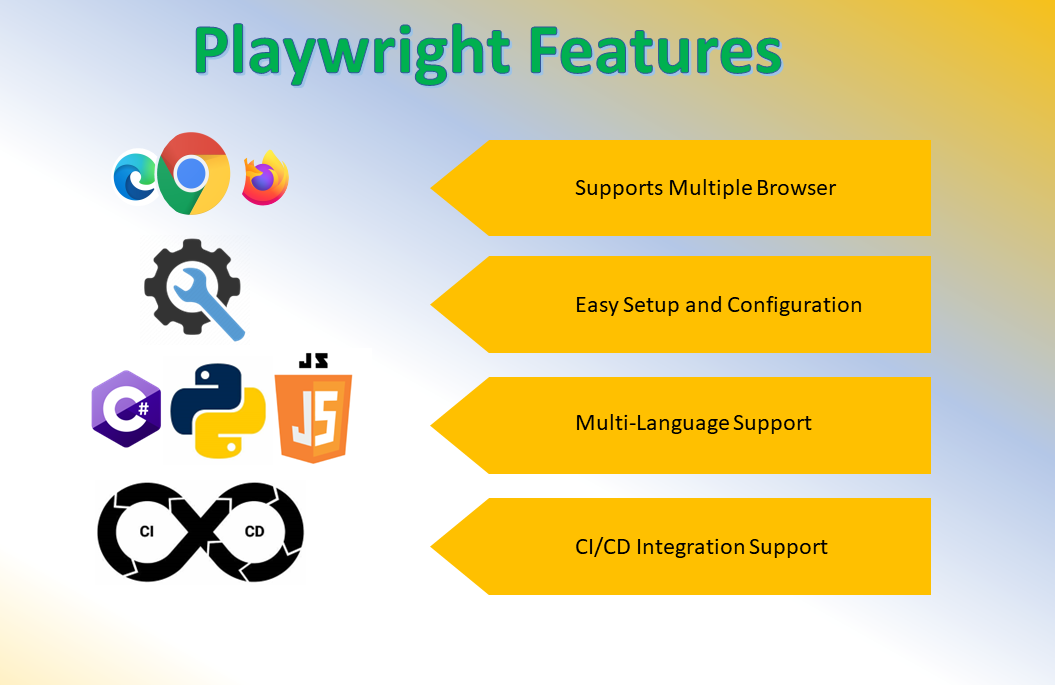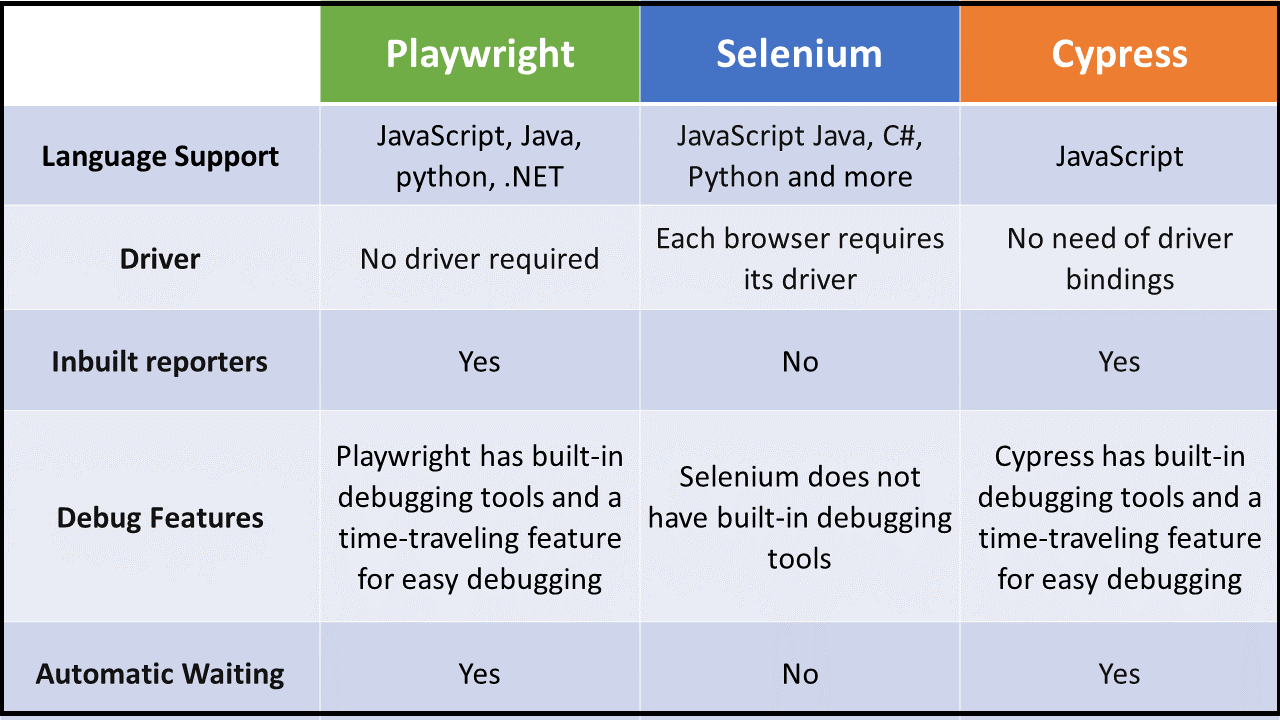Introduction:
As test automation becomes more prevalent in Agile teams, it has grown in importance within the SDLC. New test automation technologies are entering the market as the scope expands. The market was previously dominated by proprietary tools like selenium. However, new open-source tools are now leading the market.
Puppeteer and Playwright both share a similar syntax however, Playwright has several advantages over Puppeteer that it cannot match. Playwright is one of many Test Automation Frameworks available in the market. Let’s explore more about the playwright in the following sections.

What is Playwright?
Initially created by Microsoft contributors, Playwright is an open-source test automation library. Java, C#, Python, and NodeJS are among the programming languages that it supports. The Apache 2.0 license applies to Playwright, which is most widely used with NodeJS and Javascript/Typescript.

Playwright Test was developed especially to meet the requirements of end-to-end testing. Chromium, WebKit, and Firefox are just a few of the modern rendering engines Playwright supports. Test with native mobile emulation of Google Chrome for Android and Mobile Safari on Windows, Linux, and macOS locally or on CI, headed or headless.
Why Choose Playwright Automation?
Even though Playwright is new in the market, there aren’t many restrictions because it supports many different languages. Since Playwright supports C#, Java, and Python, people who want to switch from Selenium to Playwright can do so quickly. There is no barrier due to programming languages. The playwright’s first publication came out in January 2020, and since then it has been highly acclaimed.
- To create effective, reliable automated tests, it makes use of the DevTools protocol.
- Rather than relying on an intermediate translation layer, it can look inside the browser and control it, enabling the simulation of more insightful and relevant user scenarios.
Growing Popularity:
Microsoft Playwright’s most recent GitHub snapshot as of May-Jun 2023 is as follows:
- Active Users: 29.3K
- Releases: 105 (This demonstrates how diligent they are in making fixes and releasing new features.)
- Forks: 2.8K
NPM-Trends of playwright framework:
Weekly downloads: 13,68,891 approx.
Playwright Automation Advantages:
Playwright contributors are highly active in releasing new features every month, few of them are mentioned below:
- Multi-Browser support: Firefox, Webkit (Safari), and the Chromium family of browsers (Chrome, Edge) are all supported.
- Easy setup and Configuration: It only requires configuration because it is a Test Automation Framework and installation doesn’t take long. The installation procedures for Playwright may differ depending on the language we choose.
- Types of Testing: Playwright offers API, End-to-End, and Functional Testing. You can integrate Playwright with accessibility testing by using a third-party plugin.
- Multi-Language Support: Playwright is a well-liked option because it supports Java, C#, Python, Javascript, and Typescript. This functionality is lacking in the majority of modern open-source test automation frameworks.

- Support for Multiple Tab/Browser Windows: Playwright supports multiple windows and tabs. Some test cases require opening a new window, checking the scenario, and then returning to the original window. Playwright is capable of handling any kind of test scenario.
- Parallel Browser Testing: Through the use of Browser Context, Playwright also supports the execution of parallel tests, commonly known as simultaneous tests, and supports running parallel tests across various browsers. Checking several web pages at once speeds up testing and proves helpful.
- Typescript Support Out of the Box: Playwright supports TypeScript Out of the Box. Simply write your tests in TypeScript, and Playwright will read, transform, and execute them in JavaScript.
- Built-In Reporters: The Playwright framework by default includes numerous useful reporters, including HTML, JSON, JUnit, List, Dot, and Line Reporters. The most fascinating feature is that Playwright allows for the creation of custom reporters. Third-party reporting is also supported by the playwright.
- Debugging Tools Support: Playwright testing is developer-friendly since it offers a variety of debugging tools. Playwright Inspector, VSCode Debugger, Browser Developer Tools, and Trace Viewers Console Logs are a few debugging tools.
- CI/CD Integration Support: Playwright supports CI/CD Integration. Even docker images are available for several language bindings.
Other Significant Features of the Playwright Include:
- Support for Page Object Model
- Iframe Support
- Selectors Support
- Shadow DOM
- Automatic Waiting
- Videos and Screenshots
- Test Retry
- Browser Emulation
- Third-Party Test Runner Support
Limitations of Playwright Automation:
- Playwright is new and is still developing and has scope for improvement.
- There is no IE11 support.
- Playwright does not support native mobile apps.
- Despite the excellent documentation of Playwright, little support from the community may be anticipated. The user base of Playwright is still expanding because it is new in the market.
Brief comparison between Playwright, Selenium, and Cypress:

Conclusion:
In this article, you learned about what is playwright, why to choose playwright automation, and Its advantage, features, and limitation. I hope you enjoyed reading this post and found it to be useful.

